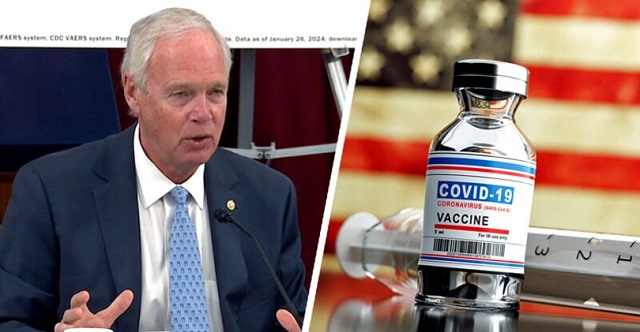Alberta
Violence Against Women is a Crisis in Every Single City

The City of Calgary remains on edge following several reports of assault and harassment against women in the last two weeks.

660 City News reports uptick in attacks on Calgary Women
One woman reported being targeted while in her car, when four men on foot surrounded her vehicle while it was stopped at a streetlight on Glenmore Trail as she was driving home. It was close to midnight and the roads were relatively quiet, and the woman reported the men pulled on all four door handles but were unable to enter the vehicle, as the doors were locked while she was driving – a simple action she believes may have saved her life.
Another woman was assaulted on the Calgary Beltline on March 18th while reportedly walking to work on 5th Street between 11th and 12th Avenue. Two men pulled her from the street into an alley where they proceeded to violently physically and sexually assault her. The incident was captured by security cameras on a nearby building.

Tributes to 33-year-old Sarah Everard continue to pour in following her murder
These frightening attacks occurred in Calgary just as the devastating news of Sarah Everard’s murder being circulating in the UK. On the evening of March 3rd, Everard was walking home from a friend’s house in south London when she went missing. The body of the 33-year-old was found on the evening of March 10th, more than 50 miles from where she was last seen. British police officer Wayne Couzens has since been charged with the kidnapping and murder of Sarah Everard.
The tragic UK story has struck chords all across the globe, and thousands of women have come forward to share their own lived experiences with physical and sexual assault. In recognition of Sarah and in solidarity with the countless women who suffer physical and sexual assault on a daily basis, women’s marches have broken out around the world. Statements such as #SheWasJustWalkingHome, #EveryWomanYouKnow and #TextMeWhenYouGetHome are now also trending online.
For many – if not all – women, the fear for personal safety is never far from mind. The extensive list of personal protection devices, such as pepper spray, pocket sirens, rape whistles, key-chains designed to smash windows from the inside, and so many more, offer just a glimpse into the lived reality of ongoing fear for women everywhere. Simply put, violence against women represents a crisis in every single city.

An analysis conducted in 2018 by the World Health Organization on violence against women, featuring data from across 161 countries and areas from 2000 – 2018 found that nearly 1 in 3 women have been subjected to physical and/or sexual violence by an intimate partner or non-partner sexual violence or both.
 According to the Assaulted Women’s Helpline, over half of all Canadian women have experienced at least one incident of physical or sexual violence since the age of 16.
According to the Assaulted Women’s Helpline, over half of all Canadian women have experienced at least one incident of physical or sexual violence since the age of 16.
The movement to end violence against women is not new, and it is still far from over. In addressing the complex structural factors that contribute to the continued perpetuation of violence against women, conversation is key.
Listening to the woman who has spent countless years holding keys between her fingers as a make-shift weapon while she walks home from work, or made pretend phone-calls to friends or family so she wouldn’t be perceived as alone. Understanding the fears of the girl who learned at an early age to never wear headphones in public and never be caught walking alone after dark – or even in the daytime, if it can be helped.
These women are our daughters, mothers, sisters and friends, and far too many of them have stories like this.
If you or someone you know is struggling with violence, assault or harassment, visit https://crcvc.ca/links/ – Support for Women for an extensive list of available resources including helplines, counseling and support centres, and a number of activism groups focused on ending violence against women in Canada and around the world.
For more stories, visit Todayville Calgary.
Alberta
Alberta’s new diagnostic policy appears to meet standard for Canada Health Act compliance

From the Fraser Institute
By Nadeem Esmail, Mackenzie Moir and Lauren Asaad
In October, Alberta’s provincial government announced forthcoming legislative changes that will allow patients to pay out-of-pocket for any diagnostic test they want, and without a physician referral. The policy, according to the Smith government, is designed to help improve the availability of preventative care and increase testing capacity by attracting additional private sector investment in diagnostic technology and facilities.
Unsurprisingly, the policy has attracted Ottawa’s attention, with discussions now taking place around the details of the proposed changes and whether this proposal is deemed to be in line with the Canada Health Act (CHA) and the federal government’s interpretations. A determination that it is not, will have both political consequences by being labeled “non-compliant” and financial consequences for the province through reductions to its Canada Health Transfer (CHT) in coming years.
This raises an interesting question: While the ultimate decision rests with Ottawa, does the Smith government’s new policy comply with the literal text of the CHA and the revised rules released in written federal interpretations?
According to the CHA, when a patient pays out of pocket for a medically necessary and insured physician or hospital (including diagnostic procedures) service, the federal health minister shall reduce the CHT on a dollar-for-dollar basis matching the amount charged to patients. In 2018, Ottawa introduced the Diagnostic Services Policy (DSP), which clarified that the insured status of a diagnostic service does not change when it’s offered inside a private clinic as opposed to a hospital. As a result, any levying of patient charges for medically necessary diagnostic tests are considered a violation of the CHA.
Ottawa has been no slouch in wielding this new policy, deducting some $76.5 million from transfers to seven provinces in 2023 and another $72.4 million in 2024. Deductions for Alberta, based on Health Canada’s estimates of patient charges, totaled some $34 million over those two years.
Alberta has been paid back some of those dollars under the new Reimbursement Program introduced in 2018, which created a pathway for provinces to be paid back some or all of the transfers previously withheld on a dollar-for-dollar basis by Ottawa for CHA infractions. The Reimbursement Program requires provinces to resolve the circumstances which led to patient charges for medically necessary services, including filing a Reimbursement Action Plan for doing so developed in concert with Health Canada. In total, Alberta was reimbursed $20.5 million after Health Canada determined the provincial government had “successfully” implemented elements of its approved plan.
Perhaps in response to the risk of further deductions, or taking a lesson from the Reimbursement Action Plan accepted by Health Canada, the province has gone out of its way to make clear that these new privately funded scans will be self-referred, that any patient paying for tests privately will be reimbursed if that test reveals a serious or life-threatening condition, and that physician referred tests will continue to be provided within the public system and be given priority in both public and private facilities.
Indeed, the provincial government has stated they do not expect to lose additional federal health care transfers under this new policy, based on their success in arguing back previous deductions.
This is where language matters: Health Canada in their latest CHA annual report specifically states the “medical necessity” of any diagnostic test is “determined when a patient receives a referral or requisition from a medical practitioner.” According to the logic of Ottawa’s own stated policy, an unreferred test should, in theory, be no longer considered one that is medically necessary or needs to be insured and thus could be paid for privately.
It would appear then that allowing private purchase of services not referred by physicians does pass the written standard for CHA compliance, including compliance with the latest federal interpretation for diagnostic services.
But of course, there is no actual certainty here. The federal government of the day maintains sole and final authority for interpretation of the CHA and is free to revise and adjust interpretations at any time it sees fit in response to provincial health policy innovations. So while the letter of the CHA appears to have been met, there is still a very real possibility that Alberta will be found to have violated the Act and its interpretations regardless.
In the end, no one really knows with any certainty if a policy change will be deemed by Ottawa to run afoul of the CHA. On the one hand, the provincial government seems to have set the rules around private purchase deliberately and narrowly to avoid a clear violation of federal requirements as they are currently written. On the other hand, Health Canada’s attention has been aroused and they are now “engaging” with officials from Alberta to “better understand” the new policy, leaving open the possibility that the rules of the game may change once again. And even then, a decision that the policy is permissible today is not permanent and can be reversed by the federal government tomorrow if its interpretive whims shift again.
The sad reality of the provincial-federal health-care relationship in Canada is that it has no fixed rules. Indeed, it may be pointless to ask whether a policy will be CHA compliant before Ottawa decides whether or not it is. But it can be said, at least for now, that the Smith government’s new privately paid diagnostic testing policy appears to have met the currently written standard for CHA compliance.

Lauren Asaad
Policy Analyst, Fraser Institute
Alberta
Housing in Calgary and Edmonton remains expensive but more affordable than other cities

From the Fraser Institute
By Tegan Hill and Austin Thompson
In cities across the country, modest homes have become unaffordable for typical families. Calgary and Edmonton have not been immune to this trend, but they’ve weathered it better than most—largely by making it easier to build homes.
Specifically, faster permit approvals, lower municipal fees and fewer restrictions on homebuilders have helped both cities maintain an affordability edge in an era of runaway prices. To preserve that edge, they must stick with—and strengthen—their pro-growth approach.
First, the bad news. Buying a home remains a formidable challenge for many families in Calgary and Edmonton.
For example, in 2023 (the latest year of available data), a typical family earning the local median after-tax income—$73,420 in Calgary and $70,650 in Edmonton—had to save the equivalent of 17.5 months of income in Calgary ($107,300) or 12.5 months in Edmonton ($73,820) for a 20 per cent down payment on a typical home (single-detached house, semi-detached unit or condominium).
Even after managing such a substantial down payment, the financial strain would continue. Mortgage payments on the remaining 80 per cent of the home’s price would have required a large—and financially risky—share of the family’s after-tax income: 45.1 per cent in Calgary (about $2,757 per month) and 32.2 per cent in Edmonton (about $1,897 per month).
Clearly, unless the typical family already owns property or receives help from family, buying a typical home is extremely challenging. And yet, housing in Calgary and Edmonton remains far more affordable than in most other Canadian cities.
In 2023, out of 36 major Canadian cities, Edmonton and Calgary ranked 8th and 14th, respectively, for housing affordability (relative to the median after-tax family income). That’s a marked improvement from a decade earlier in 2014 when Edmonton ranked 20th and Calgary ranked 30th. And from 2014 to 2023, Edmonton was one of only four Canadian cities where median after-tax family income grew faster than the price of a typical home (in Calgary, home prices rose faster than incomes but by much less than in most Canadian cities). As a result, in 2023 typical homes in Edmonton cost about half as much (again, relative to the local median after-tax family income) as in mid-sized cities such as Windsor and Kelowna—and roughly one-third as much as in Toronto and Vancouver.
To be clear, much of Calgary and Edmonton’s improved rank in affordability is due to other cities becoming less and less affordable. Indeed, mortgage payments (as a share of local after-tax median income) also increased since 2014 in both Calgary and Edmonton.
But the relative success of Alberta’s two largest cities shows what’s possible when you prioritize homebuilding. Their approach—lower municipal fees, faster permit approvals and fewer building restrictions—has made it easier to build homes and helped contain costs for homebuyers. In fact, homebuilding has been accelerating in Calgary and Edmonton, in contrast to a sharp contraction in Vancouver and Toronto. That’s a boon to Albertans who’ve been spared the worst excesses of the national housing crisis. It’s also a demographic and economic boost for the province as residents from across Canada move to Alberta to take advantage of the housing market—in stark contrast to the experience of British Columbia and Ontario, which are hemorrhaging residents.
Alberta’s big cities have shown that when governments let homebuilders build, families benefit. To keep that advantage, policymakers in Calgary and Edmonton must stay the course.
-

 Daily Caller23 hours ago
Daily Caller23 hours ago‘Almost Sounds Made Up’: Jeffrey Epstein Was Bill Clinton Plus-One At Moroccan King’s Wedding, Per Report
-

 International2 days ago
International2 days agoTOTAL AND COMPLETE BLOCKADE: Trump cuts off Venezuela’s oil lifeline
-

 Business1 day ago
Business1 day agoCanada Hits the Brakes on Population
-

 COVID-192 days ago
COVID-192 days agoSenator Demands Docs After ‘Blockbuster’ FDA Memo Links Child Deaths To COVID Vaccine
-

 Alberta23 hours ago
Alberta23 hours agoHousing in Calgary and Edmonton remains expensive but more affordable than other cities
-

 COVID-192 days ago
COVID-192 days agoChina Retaliates Against Missouri With $50 Billion Lawsuit In Escalating Covid Battle
-

 International2 days ago
International2 days agoHouse Rejects Bipartisan Attempt To Block Trump From Using Military Force Against Venezuela
-

 Business1 day ago
Business1 day agoWhite House declares inflation era OVER after shock report








